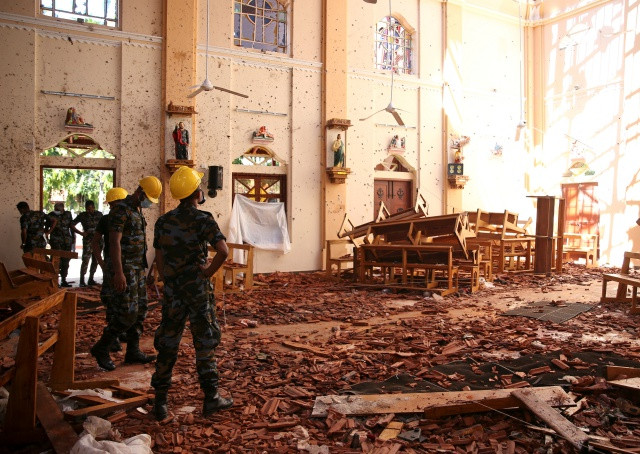Sri Lanka's still-shaky economy is bracing for a sharp slowdown in both foreign investments and foreign tourist arrivals in the wake of the murderous Easter Sunday attacks that killed 290 people and wounded over 500 other persons.
The latest word about the horrific suicide bombings is that it was revenge for the Christchurch massacre of March 15 in New Zealand where an Australian gunman murdered 50 Muslims.
"The initial investigation has revealed that this was in retaliation for the New Zealand mosque attack," said junior minister for defense Ruwan Wijewardene to Parliament. "It was done by National Thawheed Jama'ut along with JMI," he said. JMI is another local Islamist group, Jammiyathul Millathu Ibrahim.
Tourism is the island's fastest growing source of foreign currency and the third largest after garments and remittances. A large number of foreign tourists killed (40 at last count) in suicide bomb attacks on four luxury hotels in Colombo is a painful blow to an industry heavily relied upon to generate precious foreign exchange. That tourism receipts will fall is a given. The question now is by how much?
Experts note that a fall in tourism earnings will have negative effects on the Sri Lankan rupee. The Central Bank of Sri Lanka, which will be hard pressed to defend the currency through interventions because it simply lacks the money to do so, will likely raise interest rates to cope.
This, in turn, will stifle lending, hurting consumers and the investment plans of local businesses. This move will also make it more costly for the government to go after funding from foreign investors via bond markets.
"The central bank may be forced to hike rates again this year," said Win Thin, global head of currency strategy at Brown Brothers Harriman (BBH). "With foreign reserves very low right now, the central bank cannot actively support the rupee."
Sri Lanka's external position is precarious. In January, Sri Lanka used its reserves to repay debt worth $1 billion, leaving it with $5 billion left in February, the lowest reserve level since April 2017. This sum is only enough to cover two months of imports and about two-thirds of its short-term external debt, according to analysts.
The government of Prime Minister Ranil Wickremesinghe is faced with the stark possibility of requesting another loan from the International Monetary Fund (IMF) if foreign investment falls, adding to the huge currency gap left by plunging tourism receipts. Colombo also needs to finance a current account deficit of about 3 percent of GDP.
The IMF last month extended a $1.5 billion loan into 2020, a key step in keeping foreign investors involved in Sri Lanka, which is a top-performing frontier debt market. Slowing growth means lower state revenues and this will impact the budget targets agreed with the IMF.
A review will be made necessary, and the government is expected to resist pressure for any spending cuts before elections later this year.
To help fund a record $5.9 billion in foreign loans this year, the country successfully sold $2.4 billion in five-year and 10-year U.S. dollar bonds last month, but that was right after the IMF extension and amid bets of looser monetary policy.






